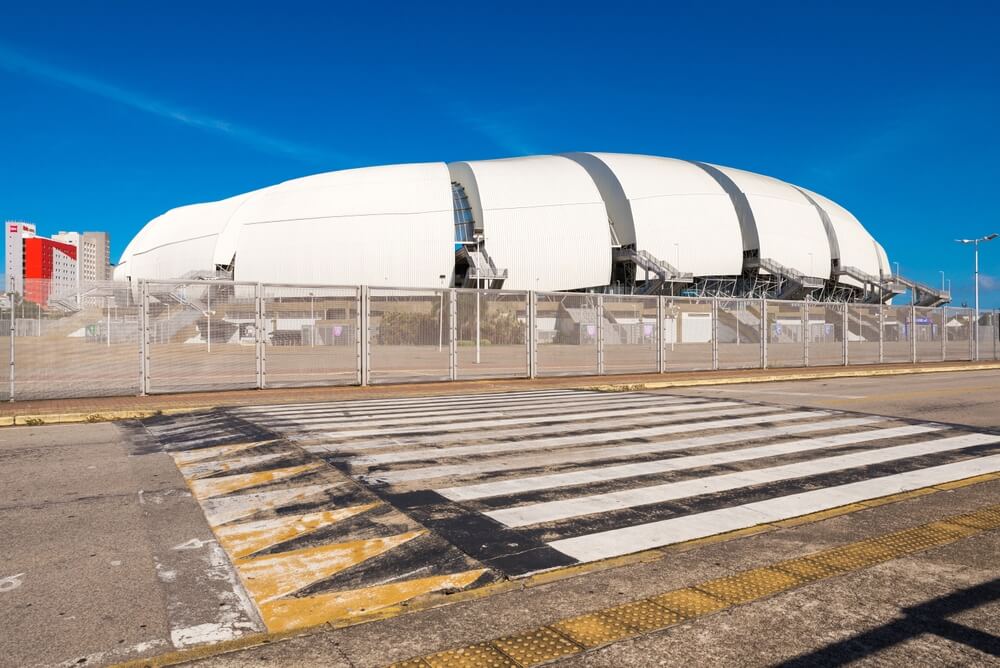The first day of the European Football Championship revealed that, out of all 24 participating nations, Scottish fans will have the worst return on investment.
A study into the costs of fans attending Euro 2024 in Germany has revealed that the Scots will have to bear the highest costs of all European fans. Their team's disastrous 5-1 loss to Germany in the opening match of Euro 2024 made things worse.
But for tens of thousands of Scots, the tournament in Germany will undoubtedly be an unforgettable event—a summer like no other worth paying thousands of pounds for.
With the feeling of enthusiasm, belonging to the national team, and passion for football, EURO 2024 will be another big money-making machine.
After a two-year absence of major football carnivals in Europe due to the COVID pandemic, the championship in Germany will show the final upswing of this major industry.
As the organiser of the competition, the Union of European Football Associations (UEFA) is planning for total revenue of around €2.5 billion, and Germany, as the host, for a further billion euros from foreign fans alone.
Nearly half of the organisers' income will come from the sale of television rights for match broadcasts in 200 countries and territories, as was the case with the World Cup in Qatar. UEFA expects this revenue to exceed the €1.135 billion it raised from the sale of TV rights at the last Euro 2020. The second-largest share of revenue will come from global sponsors.
Growth in retail sales and hotel overnight stays
While UEFA will make the biggest profit from the tournament's organisation, including the sale of around 2.7 million tickets for the matches, the German economy will have income from all the "side businesses" associated with the competition. These will not be insignificant.
During the month-long tournament, around three million fans are expected in 10 German cities, at least 600,000 of whom will come from abroad, with a total of 51 matches to be played.
The German Retail Federation therefore hopes that sales will increase by almost €4 billion during the World Cup. Hoteliers and accommodation providers are also at the forefront of the industry, expecting significant growth from the tournament.
The German beer industry is particularly looking forward to the Championship
In comparison to the typical prices from March to August, hotel accommodations in the 10 cities hosting the games until July 14 have increased by an average of nearly 60%.
The German beer industry is particularly looking forward to the Championship, as watching football logically goes hand in hand with increased demand. Sales are expected to increase by at least 5% during Euro 2024, mirroring the 2006 World Cup Germany hosted.
This would be a major boost for the beer industry, which is still trying to recover from a 4.5% drop in sales last year.
It is more profitable to organise European football than world football
The German hosts are rightly measuring the impact of the current Euro 2024 against the last major football tournament they hosted 18 years ago. Although a lot of time has passed since then, the input and output parameters have remained more or less symmetrical.
Euro 2024 will not have a particularly large impact on the German economy as a whole, which will see modest growth of around 0.5% this year.
However, organising a competition of this magnitude is still a business that will generate secure and significant revenues for the local economy.
The last major football competition, the 2022 World Cup in Qatar, generated revenue of around $7.5 billion for the organiser, FIFA, alone, which is three times more than UEFA's revenue from hosting Euro 2024 in Germany.
At $1.56 billion, World Cup host Qatar's direct financial revenue was only slightly higher than the expected German economy's revenue during the continental championship
However, at $1.56 billion, World Cup host Qatar's direct financial revenue was only slightly higher than the expected German economy's revenue during the continental championship.
In addition, the investment required to organise the World Cup is disproportionately higher than the cost of the European Football Championship. Estimates suggest that Qatar, a powerful oil and gas exporter, has invested more than $200 billion in facilities and infrastructure.
On the other hand, there is no more precise information on how much Germany invested in the organisation of the championship, although UEFA estimates these costs at around €650 million, i.e., just over a quarter of total revenue.
There are no "white elephants" in Europe
For events such as the European Football Championship, the ratio of investment to costs is far more favourable than for World Cup organisers.
Germany as host of the current championship, then the United Kingdom and Ireland as hosts of the next one in 2028, and Spain, Portugal, and Morocco as hosts of the 2032 tournament, already have the top infrastructure required to organise such a competition.
 The investment is significantly lower than in previous World Cup host nations like Qatar, Russia 2018, or Brazil 2014, which left behind "white elephants" - Natal, Brazil
The investment is significantly lower than in previous World Cup host nations like Qatar, Russia 2018, or Brazil 2014, which left behind "white elephants" - Natal, Brazil
Therefore, the investment is significantly lower than in previous World Cup host nations like Qatar, Russia 2018, or Brazil 2014, which left behind "white elephants"—stadiums and other facilities that cost billions of dollars but produced almost no profit after the competition.
Despite the European Football Championship's financial weakness compared to UEFA's Champions League, a club competition with revenue of around €3.5 billion last year, the championship's organisation continues to be a coveted and profitable business.
The current championship record in Germany can be very encouraging for the UK and Ireland, who will host the tournament of European nations in four years' time.
Estimates already place the total direct socio-economic impact for the host nations, excluding UEFA revenue, at around £2.6 billion.